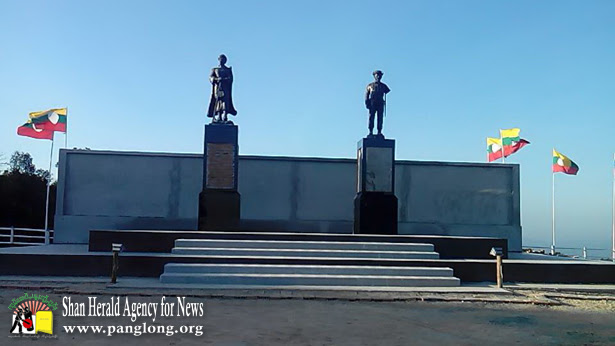Independence versus federalism was one of the hot topics of discussion during the 3-day people’s assembly, on February 3-5 at Loi Tai Leng, the headquarters of the Restoration Council of Shan State (RCSS).
People questioned the chairman of RCSS, Sao Yawd Serk, about RCSS’s standpoint regarding total independence or federalism. Before the RCSS signed a ceasefire with Naypyitaw in late 2011, it had called for independence, but since 2011 after it signed a ceasefire with Naypyitaw, it changed from its policy from independence to right of self-determination and federalism.

The newly built statues of King Sao Hsur Khan Fa of the Mao Kingdom, on the right, and the late Sao Korn Jerng, the president of the Shan United Revolutionary Army on the left, at Loi Tai Leng. (Photo: SHAN)
In response to this, the chairman explained to people that independence was the right of Shan State as it was in the Panglong Agreement. However, in the past, the military regime did not give any opportunity for political dialogue so the RCSS called for independence.
However, since the new quasi-civilian government had begun for peace talks and was opening a space for political dialogue, the RCSS would solve the political conflict through political means.
“If this space is closed, then we will have no choice but to resume our legitimate aim,” he said. He received a huge applause from the assembly.
The people at the assembly, including monks, laypeople, youth and teachers, are staying on at Loi Tai Leng to celebrate the 67th Anniversary of Shan State National Day, which falls on February 7.


